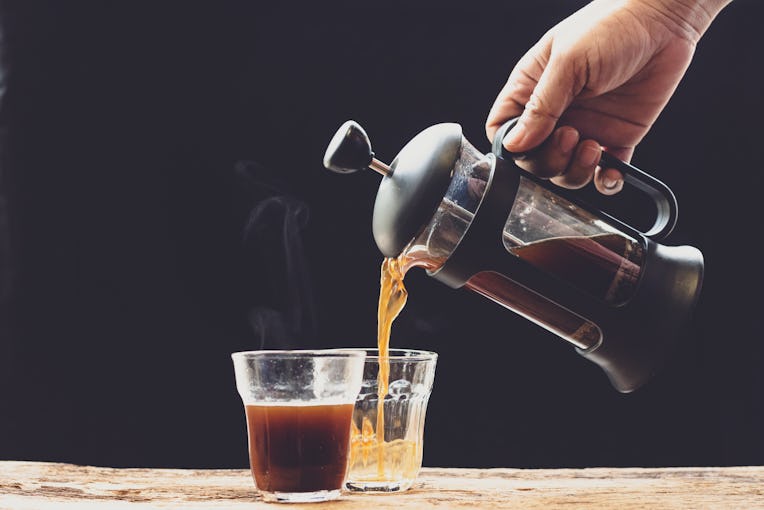French Presses Make Terrible Coffee
Even a cheap electric coffee maker can do a better job

It’s natural to want to make coffee in a French press because they’re cute and cheap and seem fun, or at least easy, to use. For a while they were the fanciest normal-person brewing option, and quickly became a popular way to serve coffee in restaurants and hotels to show that the coffee was fancier than the average diner cup. It’s a romantic way to leisurely have your coffee with the newspaper. Unfortunately, the French press is an incredibly flawed brewer whose time has come and gone.
I admit it’s annoying to invoke “third-wave coffee,” but it’s worth remembering that for a really long time, coffee was not interesting. If a bean’s origin was stamped on a label, it almost didn’t matter because all coffee kind of tasted the same. It was roasted dark and wasn’t very fresh, or if it had been freshly roasted it was sold from open-top barrels so it was “fresh” but also going stale. But now there are tons of artful roasters making coffees that actually taste like the crazy flavors in the tasting notes.
And even if you love a toasty dark roast your options for making coffee have drastically improved in every direction, and I’m not just talking about Chemex and manual espresso makers.There are really good automatic drip machines, even ones that claim a pour-over like experience, and honestly, I think even a cheap electric coffee maker can do a better job than a French press as long as it’s clean and you don’t let it scorch on a heating plate.
I’ve said moka pots are bad, but French press is really bad, maybe the worst way to make coffee. It’s not entirely the vessel’s fault. The way people make French press coffee is typically lawless: eyeing some heaping scoops of coffee, estimating the brew time, and then — the real crime specific to this pot — letting the coffee continue to brew into perpetuity, typically while uninsulated.
On top of over-extraction, the mesh on the metal plunger is fairly loose compared to other metal and paper filters. Professionals analyze brewed coffee using TDS, or total dissolved solids, because the amount of coffee material infused into the water has an outsize effect on how coffee tastes and feels. There is a range of optimal TDS for every brewing method, and beyond that, you are going to the realm of objectively bad coffee. While people like to praise the French press for producing a fuller, bolder cup, I’m pretty sure that’s the masochism talking. The coffee feels so full because your palate is overloaded with coffee solids from a prolonged extraction and mild filtering. Under those conditions, it’s hard to judge a coffee at all.
Brewing hot coffee should not be a long, leisurely affair. The cup you drink after the first three minutes might be okay but the next one was sitting in its mud for 15, how could that possibly be good, or even as good as the first cup?
The French press is not a complete coffee solution. There is a part two: time your brew and once it’s done, you must decant it all into a different vessel — preferably a preheated thermos if you’re in it for the long haul, but a glass carafe will do if you chase your cups in quick succession.
You should also treat the process a little more like a pour-over cup of coffee and measure out your beans and water (I like a ratio of 1:17). Start by coarsely grinding the coffee and then blooming it in the French press with a little bit of the hot water for 30 seconds to release some of the gasses, before topping the pot off with the rest of the water. At this point, you should stir the coffee a bit to actually get some of the good aromas out instead of letting the grounds float to the top and hope they do their thing, and then cover it with the plunger before setting a timer for two to three minutes depending, on the type of beans you’re using.
Sometimes doing something inefficiently feels right because it’s a luxury to even have the time to spare, but it shouldn’t come at the cost of good coffee. Just something to consider the next time your French press inevitably cracks and you have to order another one.